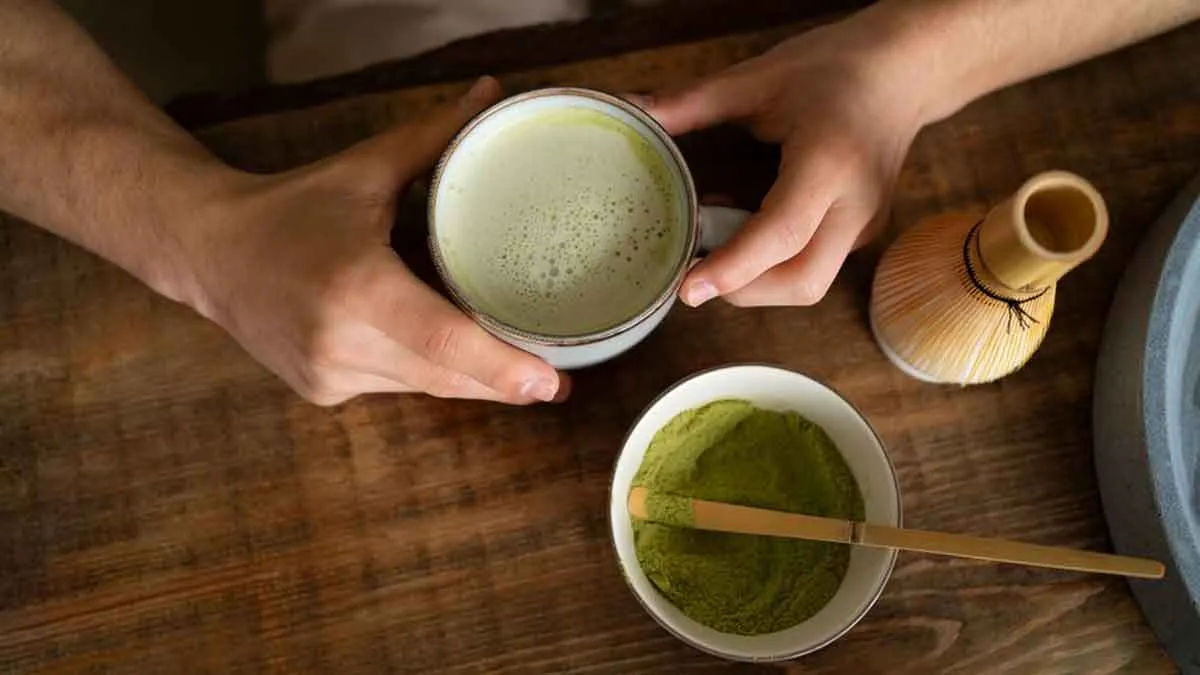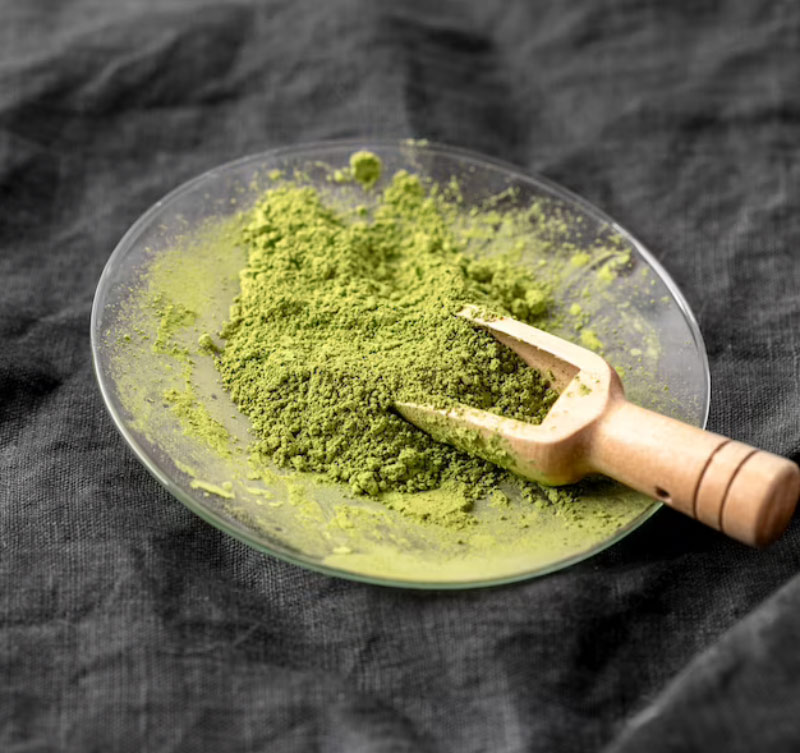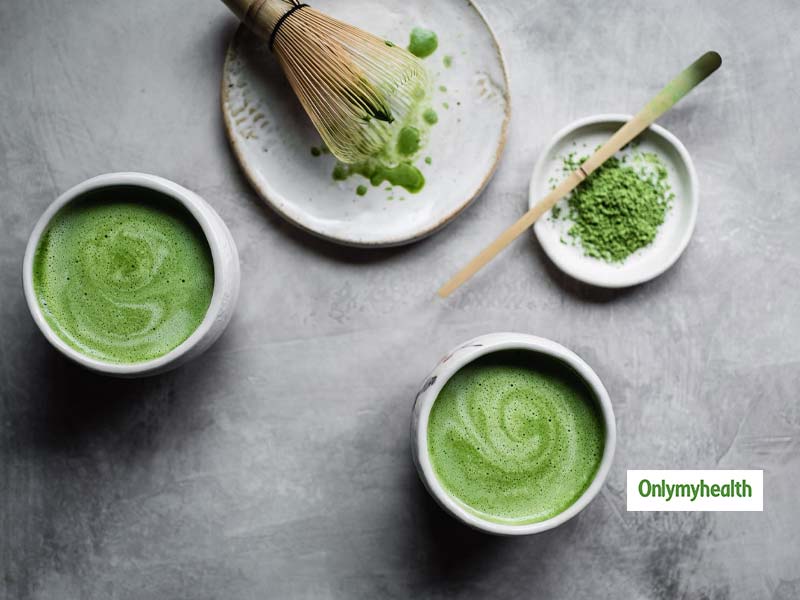
Over the last few months, Matcha, a vibrant green powder made from finely ground green tea leaves, has exploded on the internet. From trendy lattes to health food aisles, it seems to be everywhere. But what's behind the "matcha hype"? Can this beverage boost your health, or is it just another fleeting, potentially unhealthy trend? We asked the same to our expert Dr Pooja Singh, Senior Dietician, Sharda Hospital - Noida, to debunk the truth with us. Here is what she shared with us and what you need to know!
Table of Content:-
Understanding Matcha
Unlike traditional green tea, where leaves are steeped and discarded, matcha involves consuming the entire leaf. The tea plants are shade-grown, which increases their chlorophyll and amino acid content, giving matcha its distinctive color and slightly sweet, earthy flavor. This unique cultivation and consumption method means that matcha boasts a higher concentration of certain nutrients compared to regular green tea.
Potential Health Benefits
The buzz around matcha isn't entirely unfounded. Research suggests several potential health benefits:
1. Rich in Antioxidants
Matcha is packed with potent antioxidants called catechins, particularly epigallocatechin gallate (EGCG). These compounds help combat free radicals in the body, potentially reducing cell damage and the risk of chronic diseases like heart disease and some cancers.

Also Read: Can You Conceive Naturally After Failed IVF Cycles? How Does This Happen?
2. Improves brain Function
Studies indicate that matcha may enhance attention, memory, and reaction time. It contains both caffeine for alertness and L-theanine, an amino acid that promotes relaxation without drowsiness. This combination can lead to a state of "calm alertness" often reported by matcha drinkers, avoiding the jitters and crash associated with coffee.
3. Potential for Heart Health
Similar to green tea, matcha's compounds may contribute to lower blood pressure and cholesterol levels, potentially reducing the risk of heart disease.
4. Assists in Weight Management
Expert Pooja also suggested that matcha may slightly boost metabolism and increase fat burning.
5. Protects the Liver
Research indicates that green tea, and by extension matcha, may help protect against liver damage and reduce the risk of liver disease.
6. Anti-Cancer Properties
Test-tube and animal studies suggest that certain compounds in matcha may inhibit the growth of cancer cells, although more human research is needed.

7. May Promote Better Mood
L-theanine in matcha is linked to increased alpha brain wave activity, which is associated with relaxation and reduced stress and anxiety.
Or Is It Just an Unhealthy Trend?
While matcha offers potential benefits, it's important to consider a few points:
1. Caffeine Content
Matcha does contain caffeine, although generally less than coffee. Individuals sensitive to caffeine may experience side effects like anxiety, insomnia, or headaches with excessive consumption.
2. Quality Matters
The quality of matcha can vary significantly. Some lower-grade matcha may contain impurities or heavy metals. Opting for high-quality, ceremonial-grade matcha from reputable sources, ideally from Japan, is advisable.
Also Read: Excessive Salt Intake Can Increase The Risk Of Depression, Expert Shares Prevention Tips
3. Added Ingredients
Be mindful of how matcha is prepared, especially in cafes. Many matcha lattes contain added sugars and syrups, which can negate the health benefits and contribute to an unhealthy drink. Opt for unsweetened versions with milk or plant-based alternatives.
4. Not a Magic Bullet
Matcha is not a substitute for a balanced diet and healthy lifestyle. While it can be a beneficial addition, relying solely on matcha for health improvements is unrealistic.
The Verdict!
Matcha appears to be more than just a fleeting unhealthy trend. Its rich antioxidant profile and potential cognitive and metabolic benefits suggest it can be a valuable addition to a healthy lifestyle. However, moderation, choosing high-quality matcha, and being mindful of added ingredients are key to reaping its benefits without potential drawbacks. Like any food or beverage, it's best enjoyed as part of a well-rounded approach to health and wellness.
Also watch this video
Read Next
Is That Yellow Coloured Juice Safe? How Tartrazine In Packaged Drinks Could Harm Your Child’s Health
How we keep this article up to date:
We work with experts and keep a close eye on the latest in health and wellness. Whenever there is a new research or helpful information, we update our articles with accurate and useful advice.
Current Version